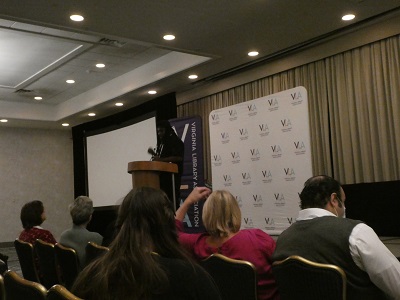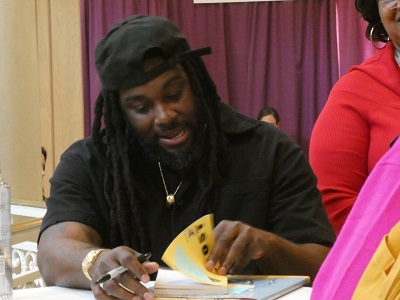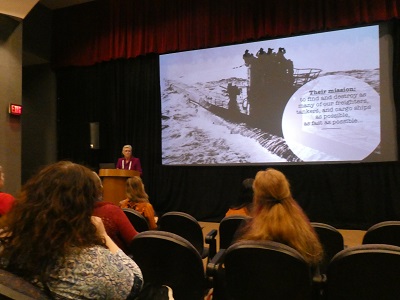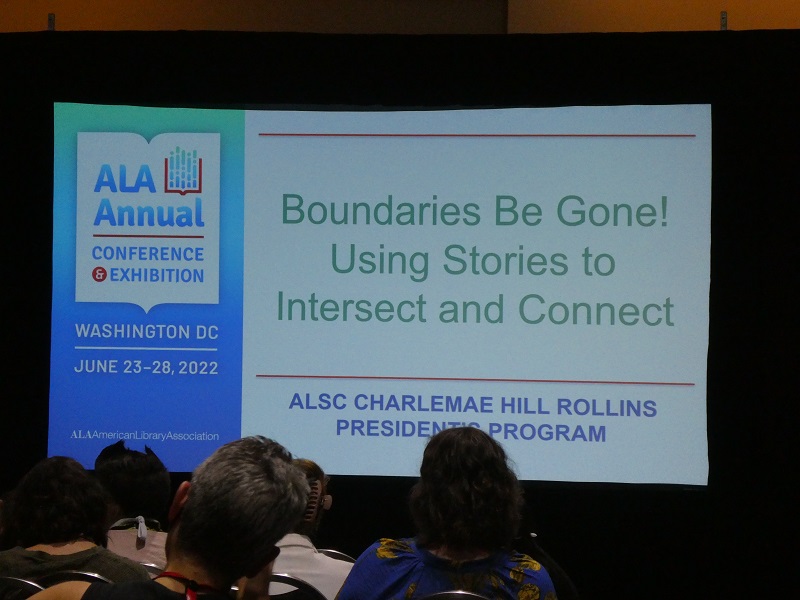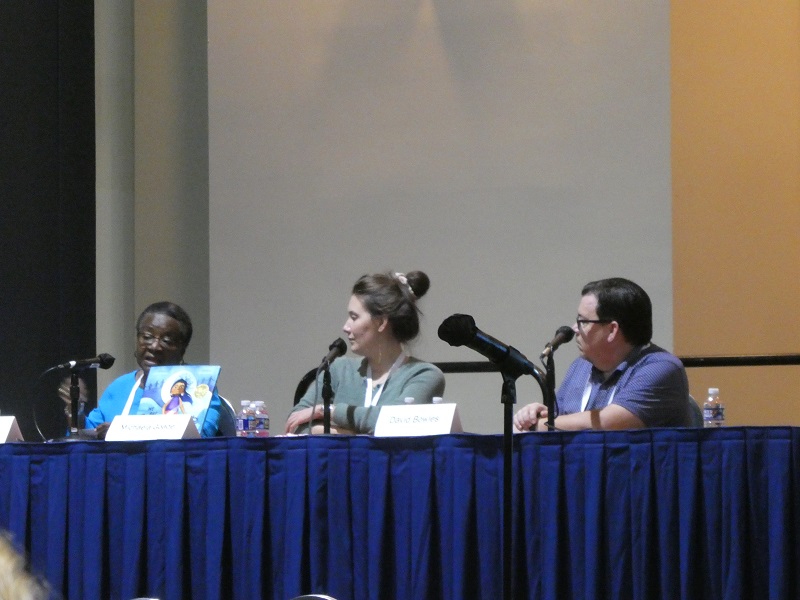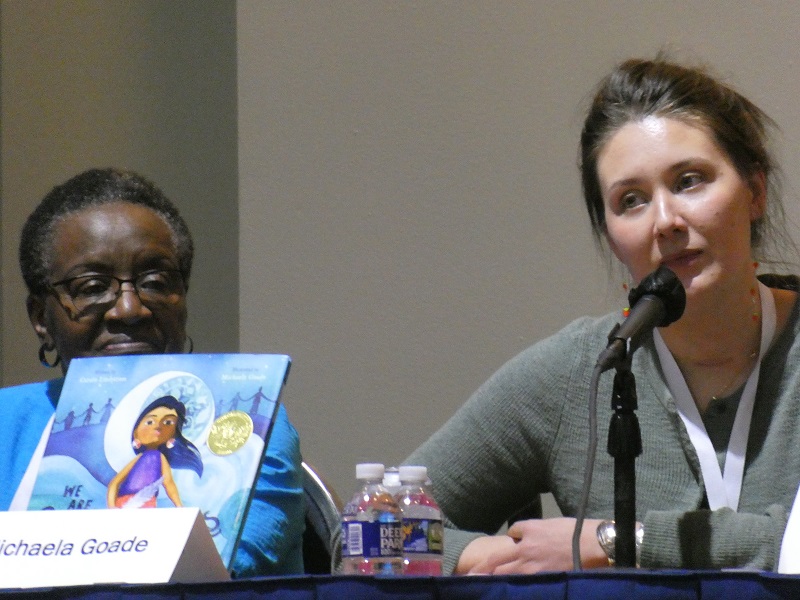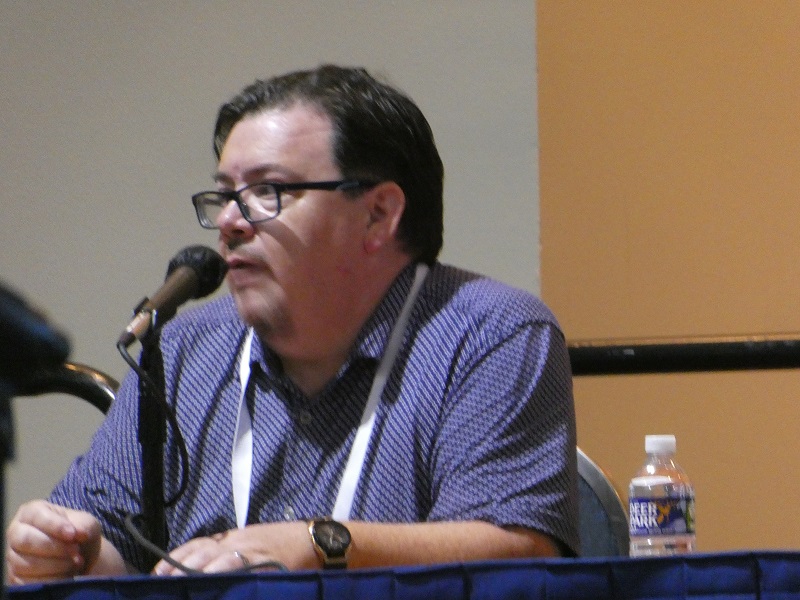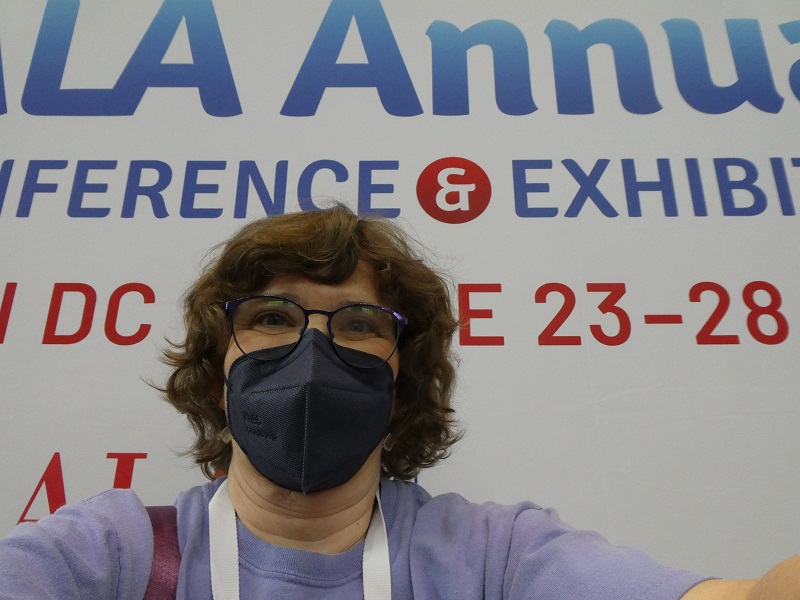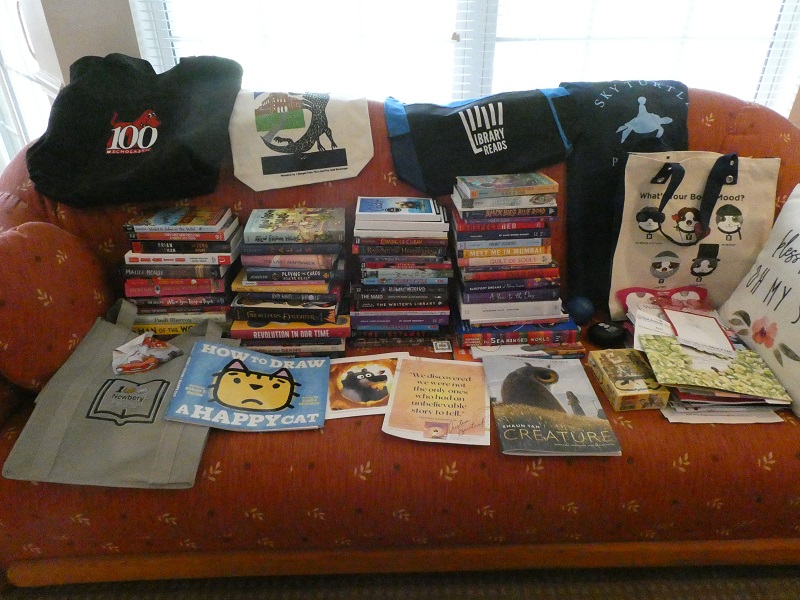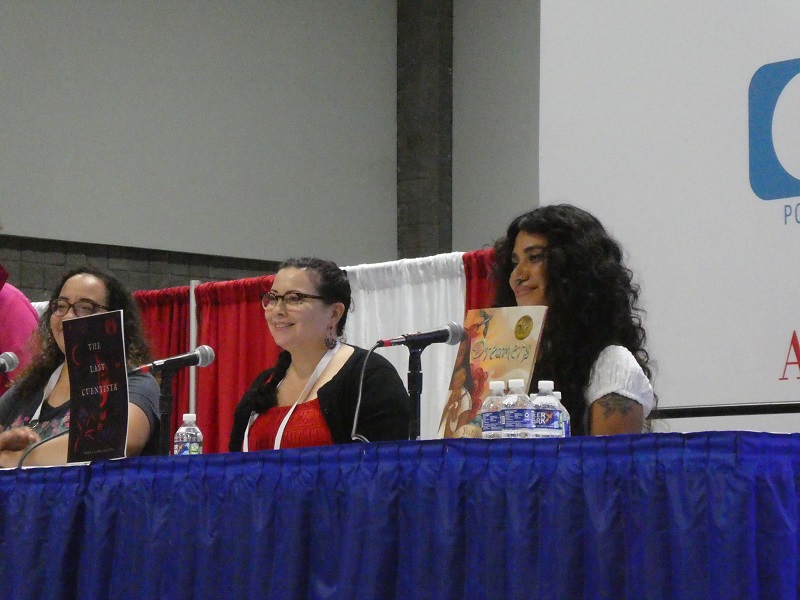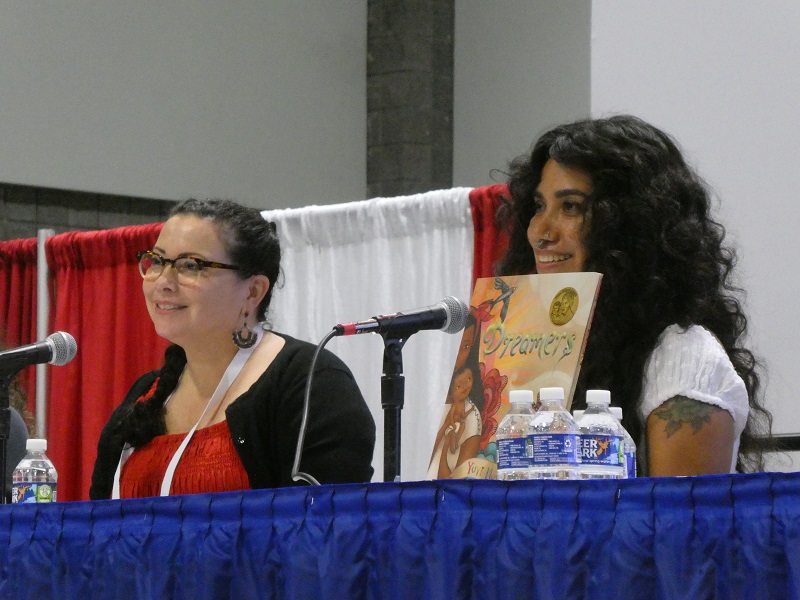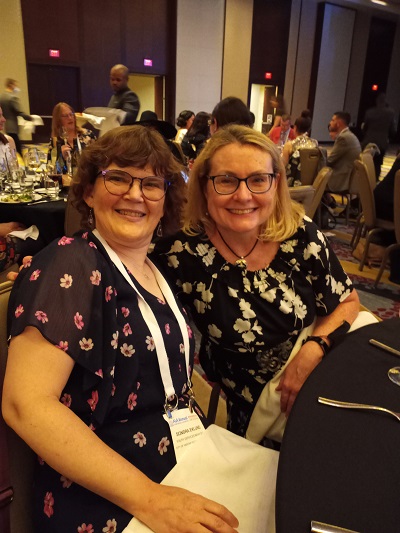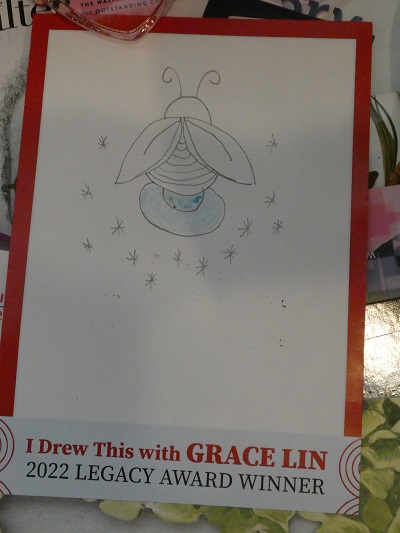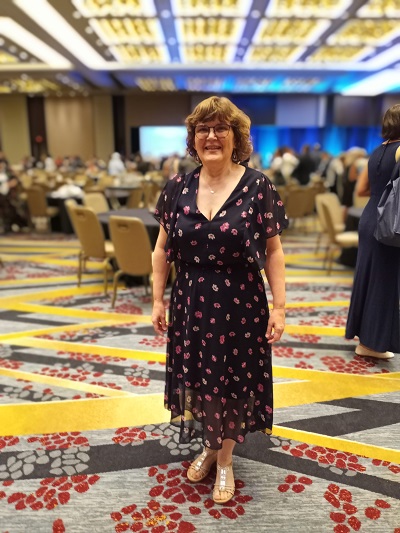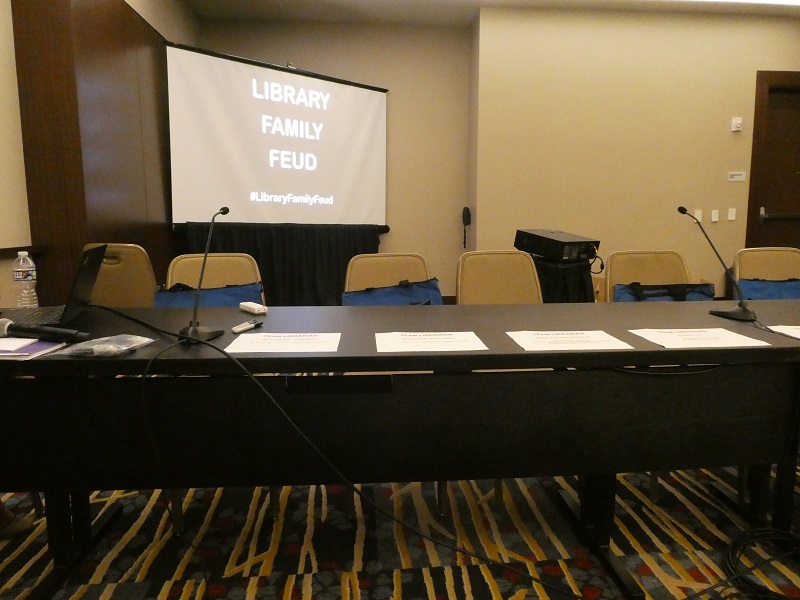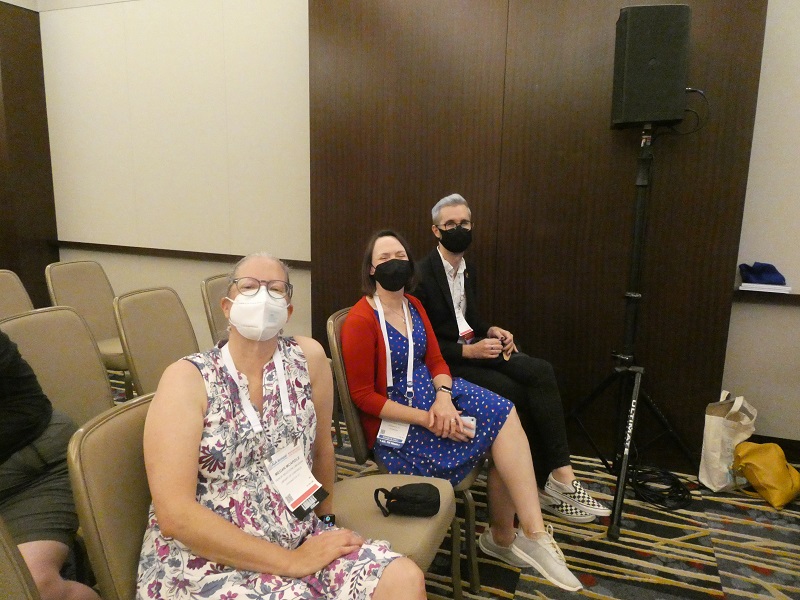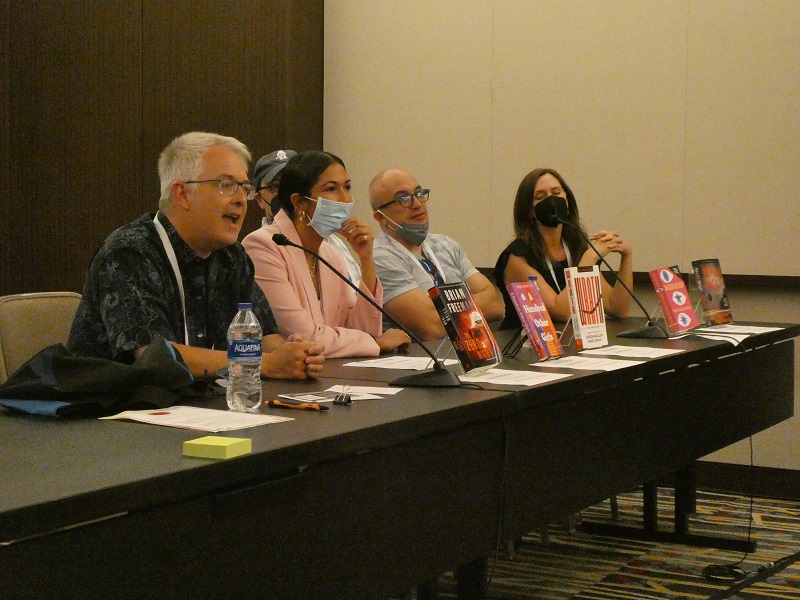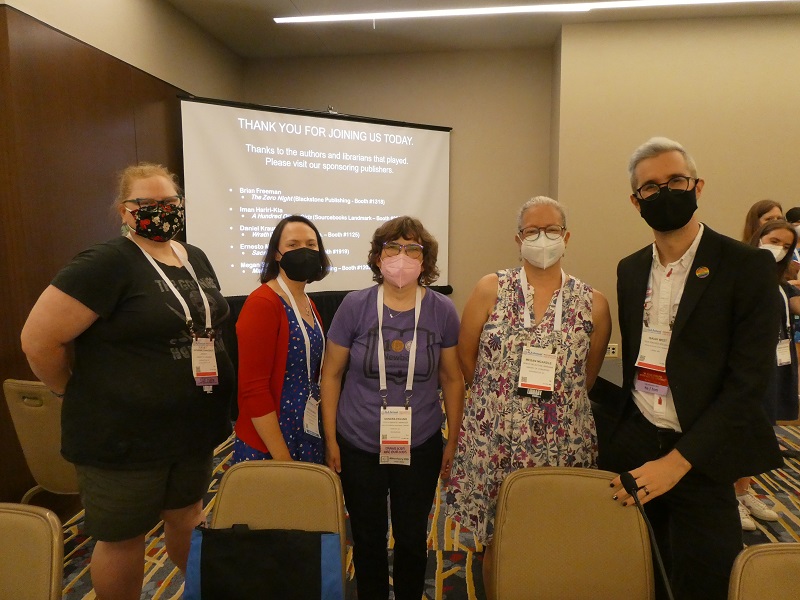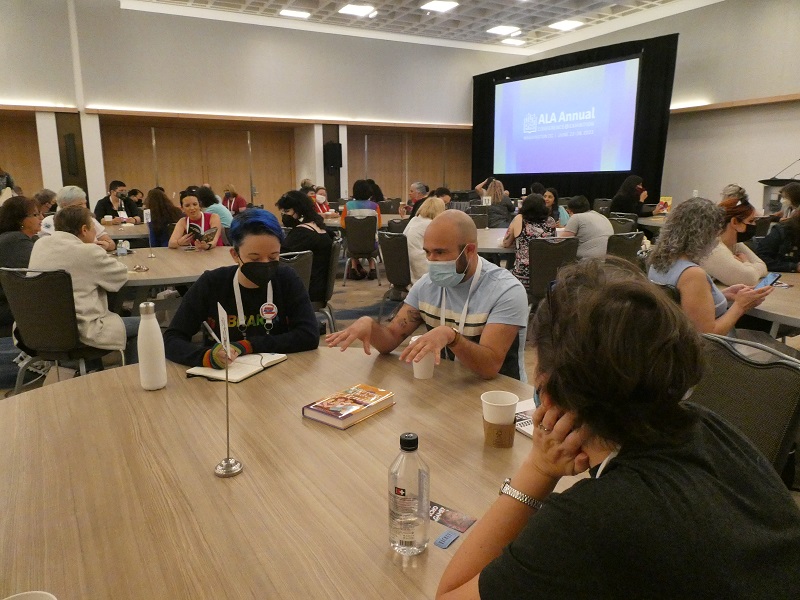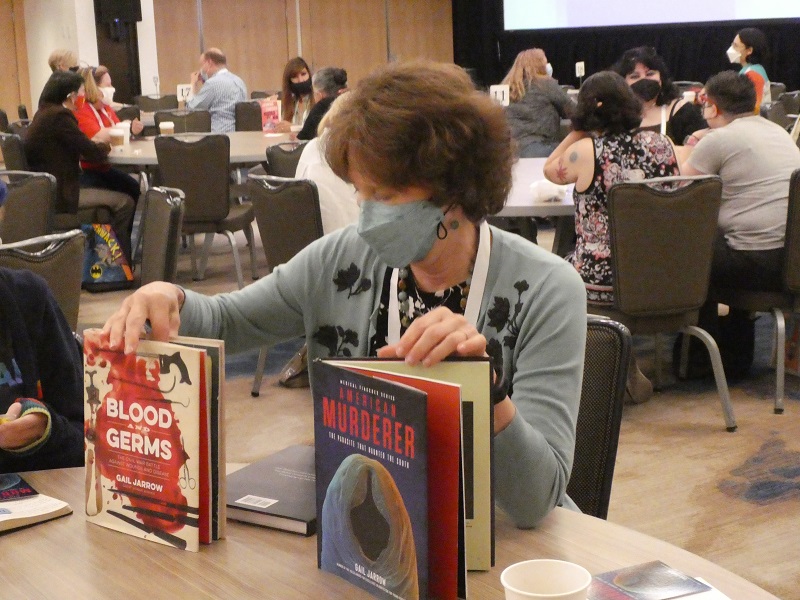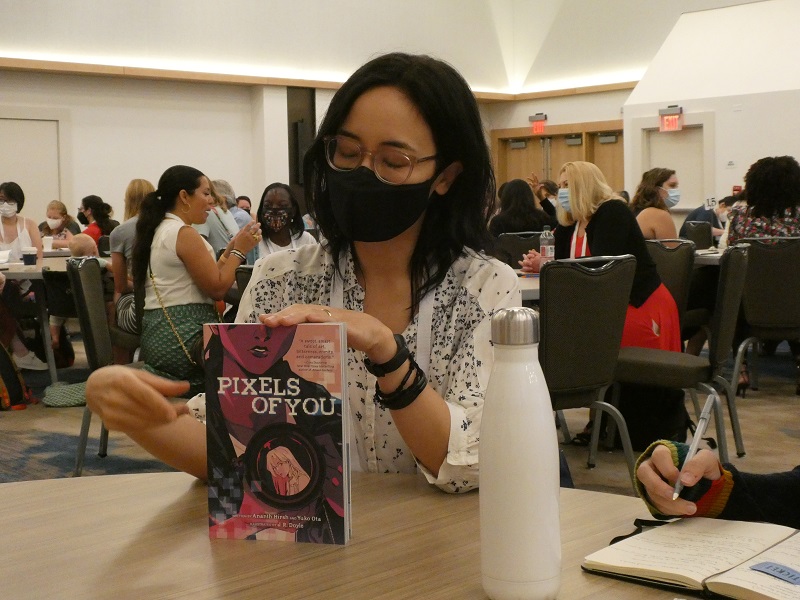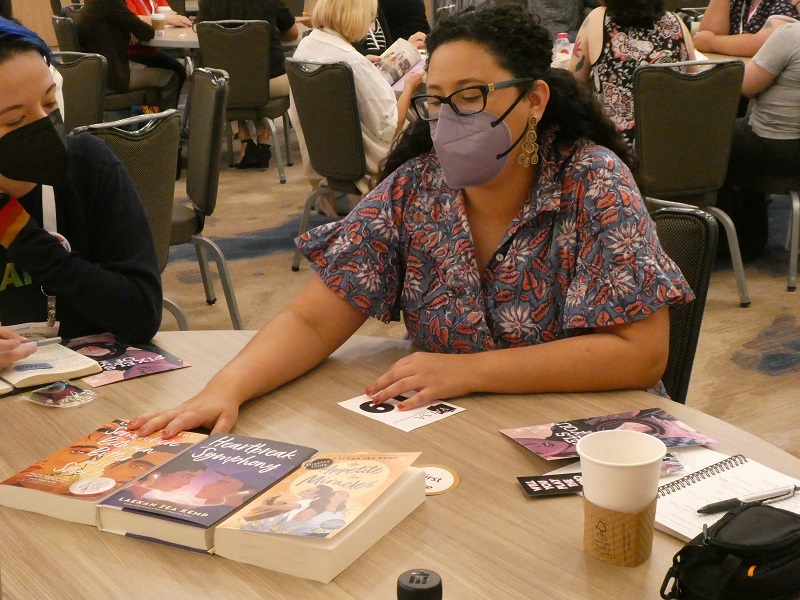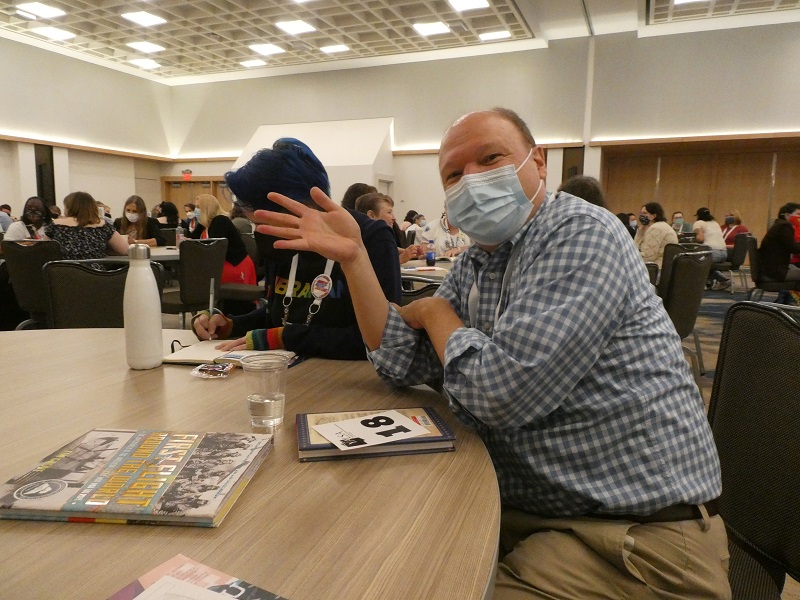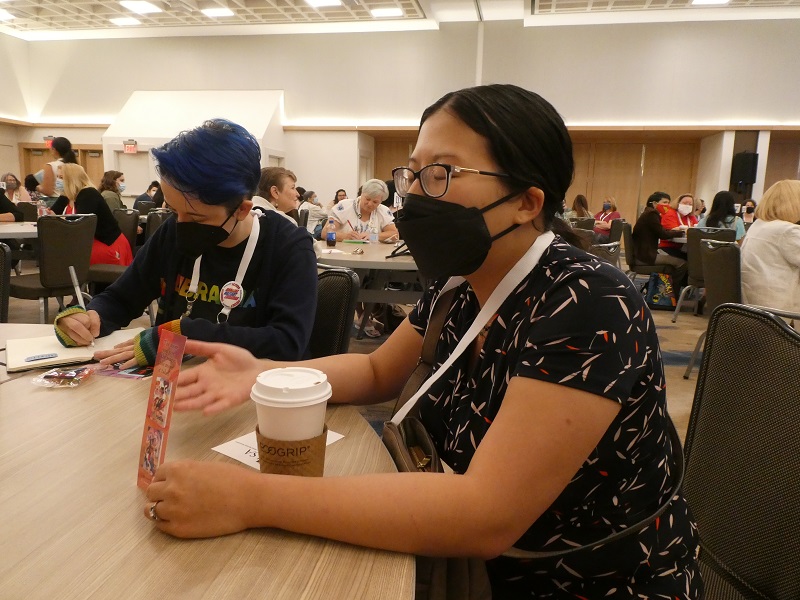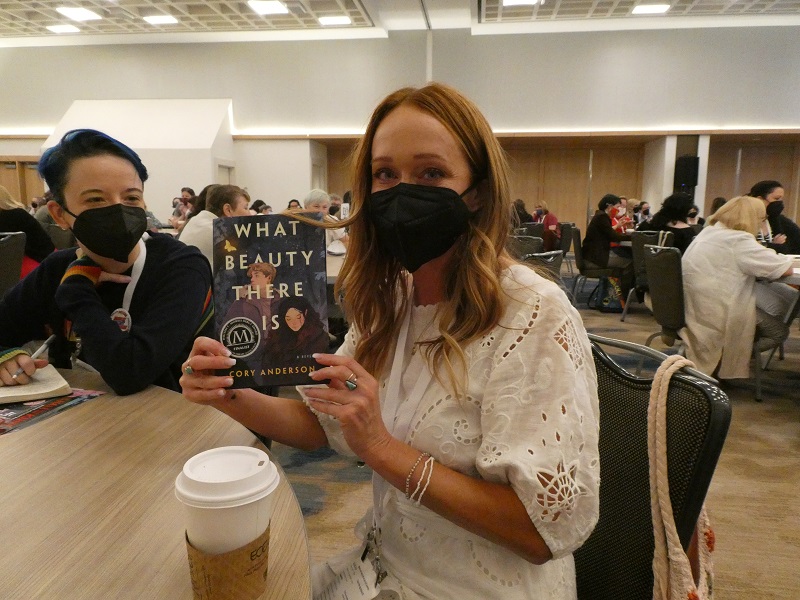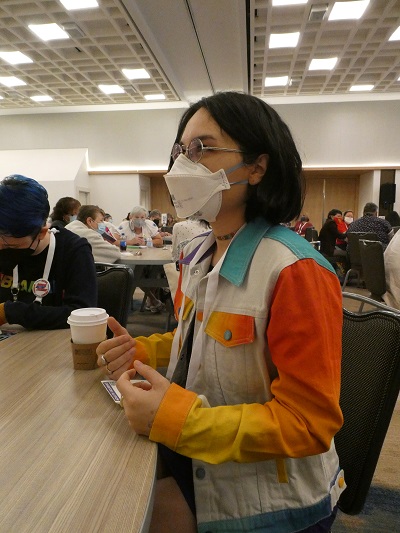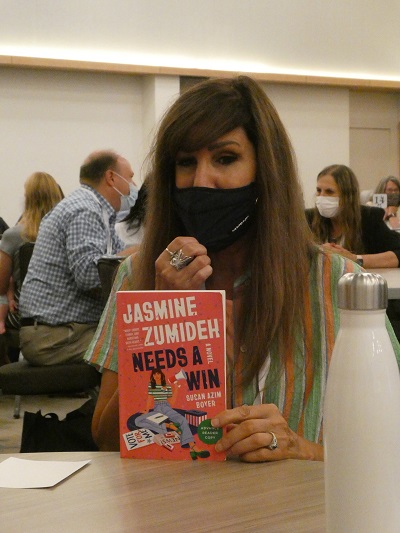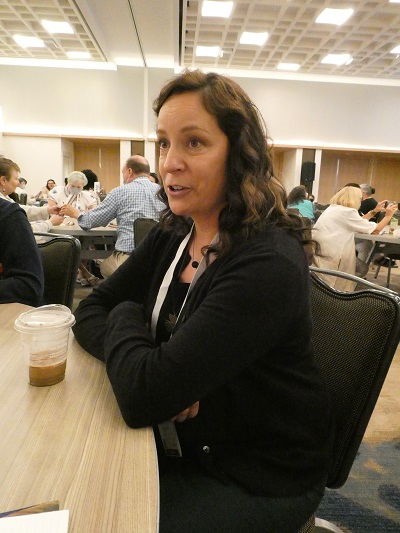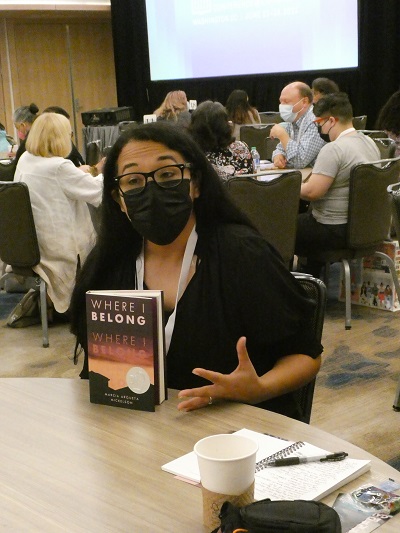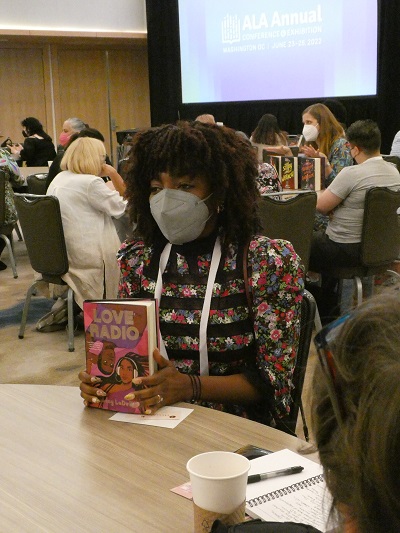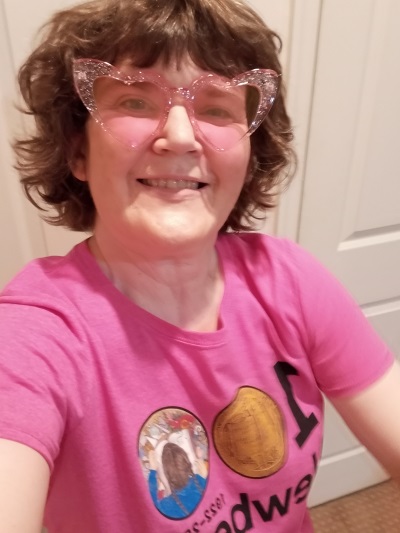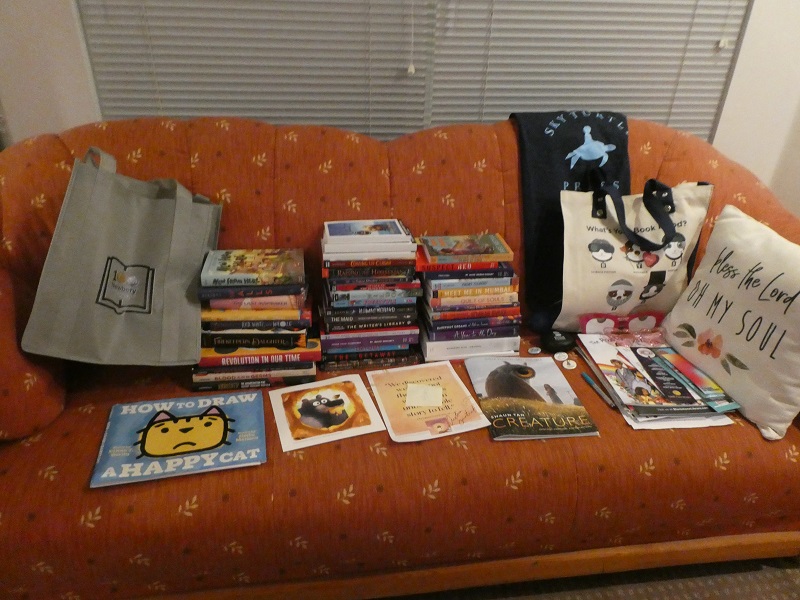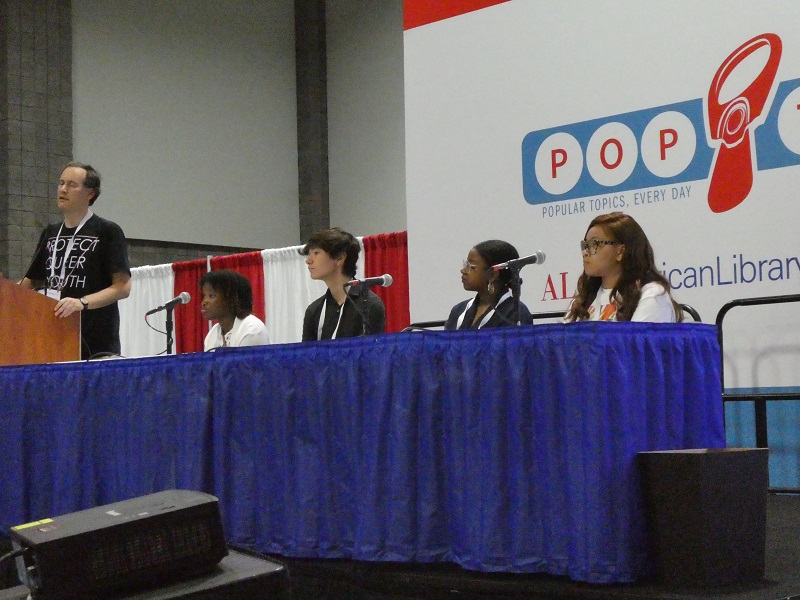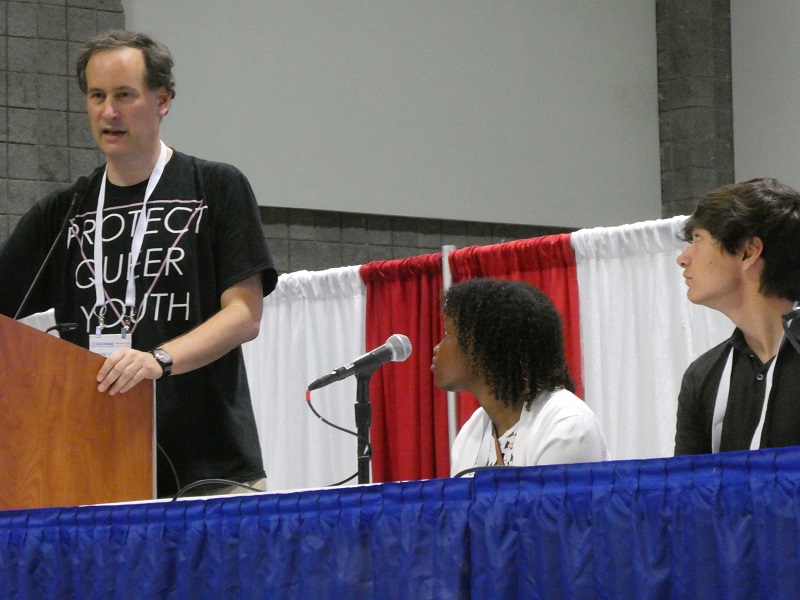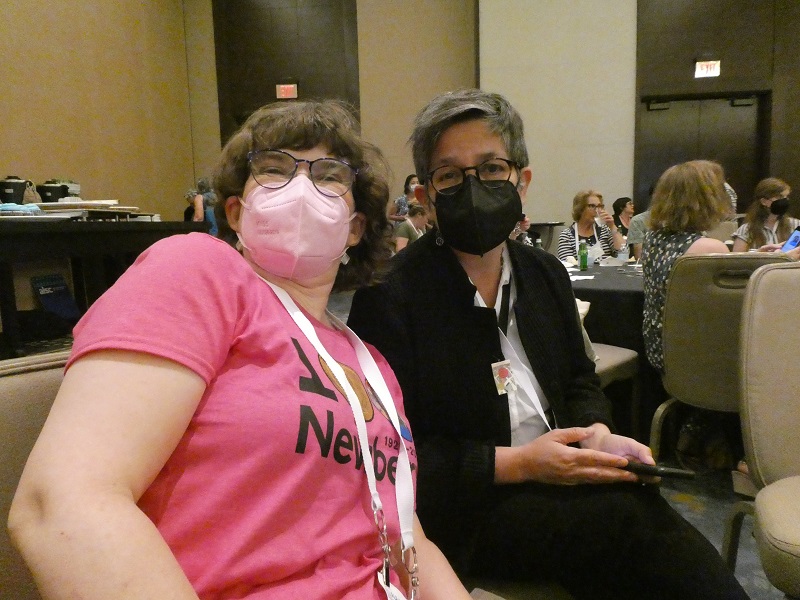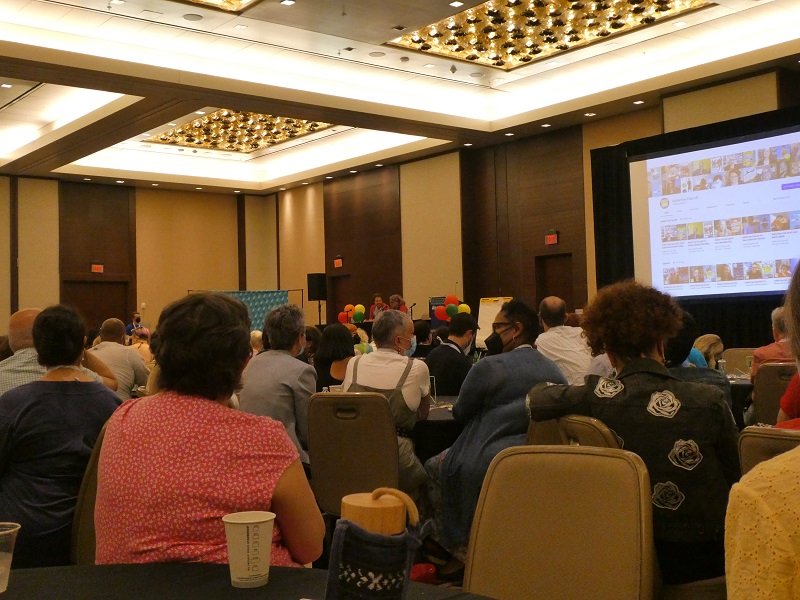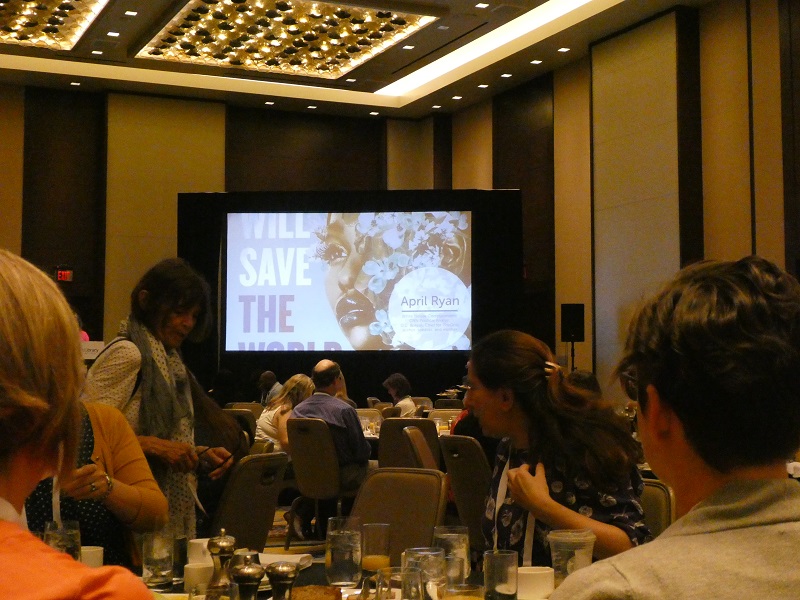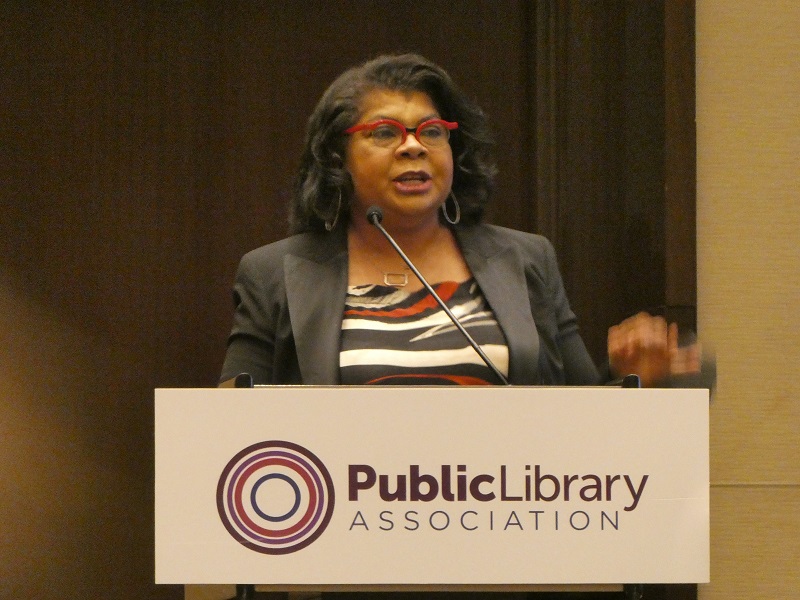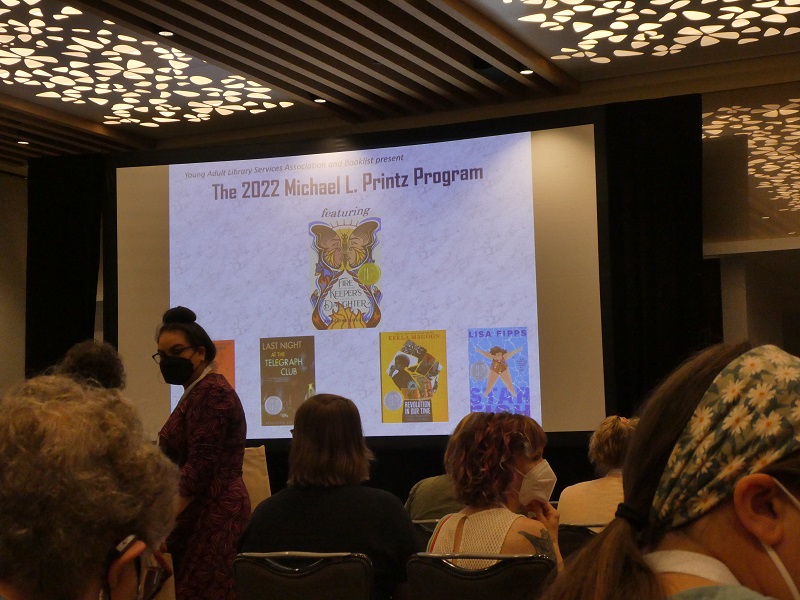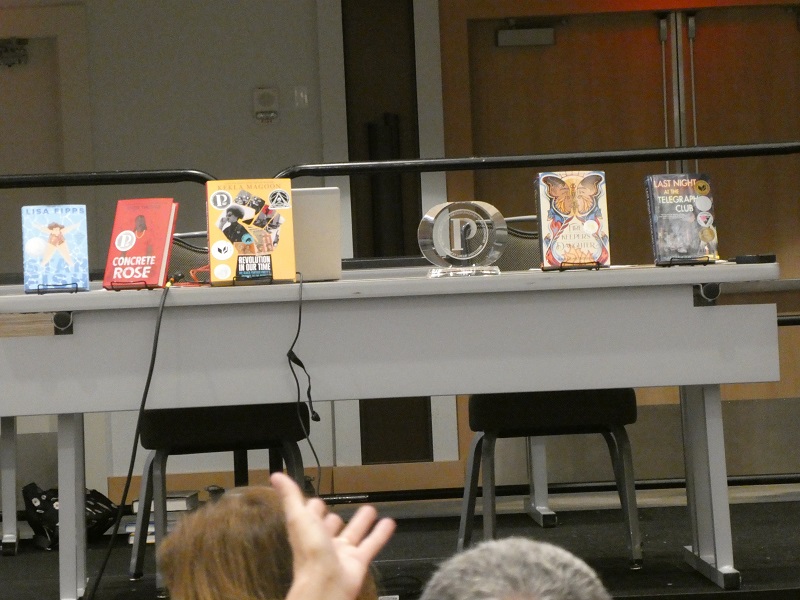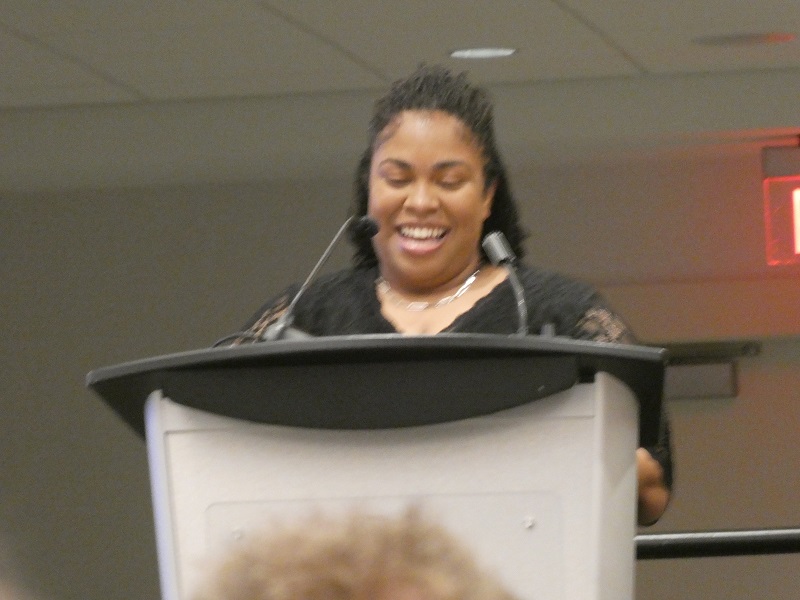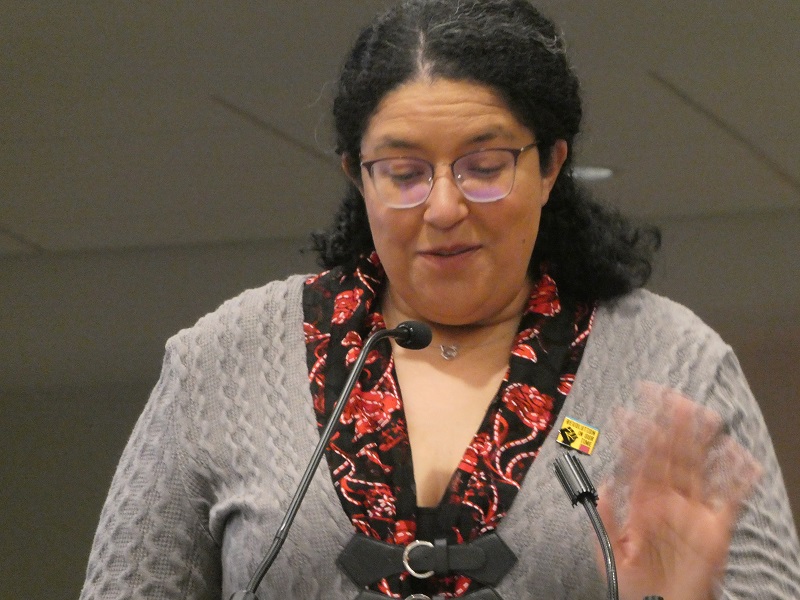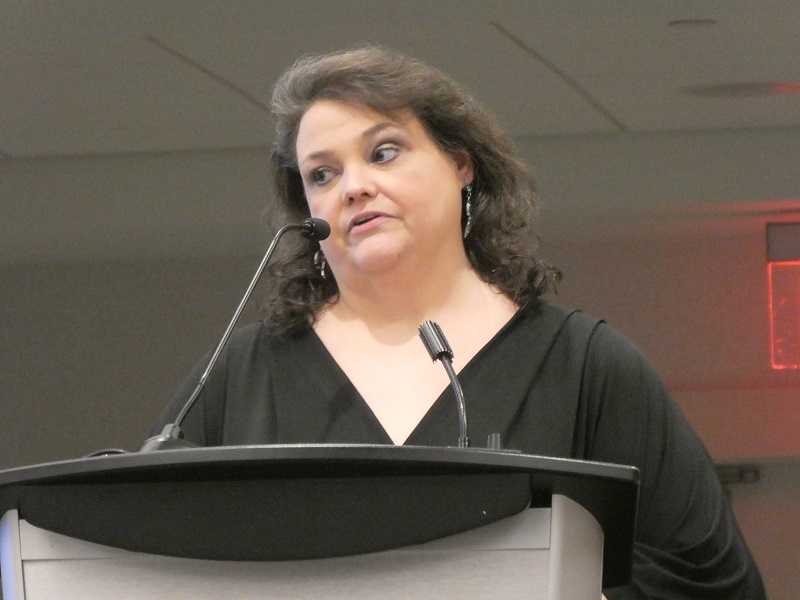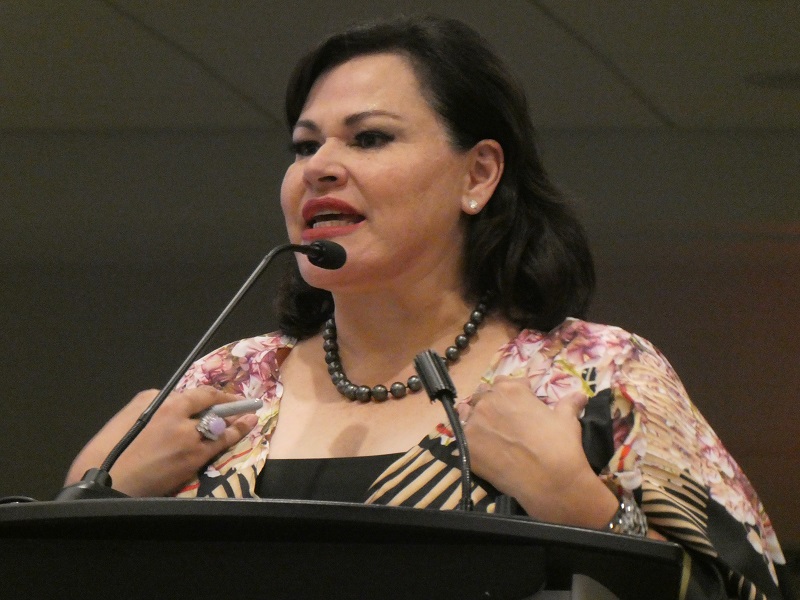Conference Corner – Virginia Library Association Conference 2023
ast Tuesday, I got to attend one day of the Virginia Library Association Conference. It was close by — basically in between my home and my workplace. I like to write up notes to consolidate what I learned, always bearing in mind that a big part of the value of librarian conferences is connecting with colleagues. In this case, I got to see many friends from my own library system and have lunch with people I used to see daily.
First up, the keynote speaker was author Jason Reynolds.
Now, if you’ve never heard Jason Reynolds speak, you need to find a way to do so. And I can’t communicate in notes his humor and presence — you had to be there.
But I will also note some good points he made (with lots of humor and poignancy):
He talked about relating to kids, as he does as an author but also as a person. He says you need three things: Humility, Intimacy, and Gratitude.
In his writing, he needs Humility because he’s no longer 13.
He’s got intimacy because the language of his neighborhood (rap) has become the language of youth culture. He puts boys in stories where they can be vulnerable.
Gratitude — He shows kids as human beings. His books are his love letters to kids.
Books are the tickets he created to get access to human beings, his golden tickets to every school in the country.
When we deal with humans, we need:
Humility — Deal with our egos. Adults are an entitled population. We need humility to create a relationship with kids.
Intimacy — Thank them for coming. Without the kids, we have no purpose.
Books are important, but we ban humans every day, by not acknowledging them.
Look up and see the people around us. We’re all made to be opened.
***
After lunch, the next session I went to was the Cardinal Cup Author Spotlight.
The Virginia Library Association gives an annual award to honor a distinguished biography, historical fiction or American history book for young people. It has this year been renamed the Cardinal Cup instead of the Jefferson Cup.
The winning book this year was Louisa June and the Nazis in the Waves, by L. M. Elliott. The author talked about her research about the Nazi U-boats that used to patrol the East Coast of the United States and in March 1942, before sonar, were sinking an American ship every 8 hours. Five U-boats sank 397 ships. I’d had no idea! Her talk about her research and the tidbits she found was fascinating.
Her writing process is research, then imagination, dictated by fact. I was enchanted by all she had to say and got two signed books (this one and her next one), which I plan to read just as soon as we’ve chosen this year’s Morris Award winners.
***
The next session was called Legislative Panel on the Right to Read in School and Local Public Libraries
It was moderated by VLA’s liaison to the legislature and featured a Virginia state senator and state legislator who have been fighting increased legislation attacking the right to read and trying to limit what’s available in Virginia libraries.
As the legislator said, parents who *want* their children to have access to books have rights, too.
The Virginia senator speaking is also a professor of literature, so this is close to her heart. After all, we know the dangers of book banning.
This past legislative session, they talked about bills that were defeated, and a bill that got through. On its surface, it is saying parents have to consent to study books in class. In practice, it made it easier to ban books.
They warned us that advocacy is important. Right now, those who want to ban books have the loudest voices, and we need to change that. Advocacy matters.
This is driving government control on speech and thinking.
Remember: We never want politicians to determine what is literature!
***
The final session I attended was four “lightning talks” with basically nuts-and-bolts library issues, including two friends from my library system who made an app that helps manage our collection.
Altogether, it was a great day to get out and mingle with other librarians and be inspired and refreshed to continue doing the work.
